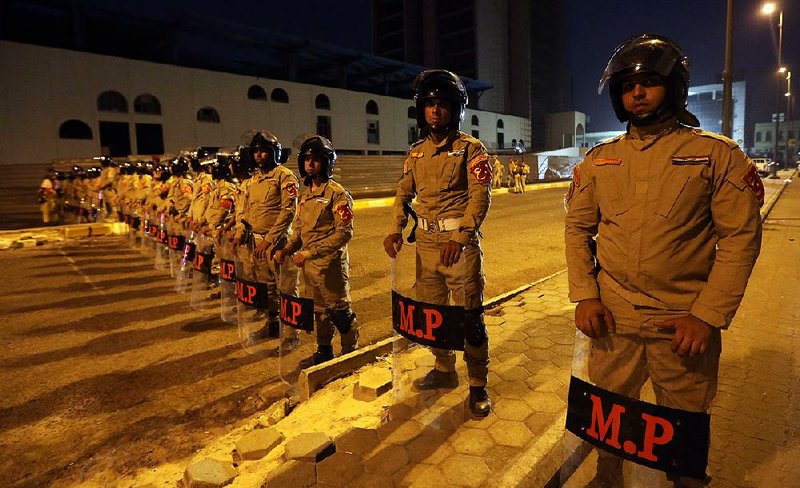BAGHDAD -- Iraq's top Shiite cleric said Friday that the government must show it was seeking genuine change to combat corruption and improve services and not just introduce temporary measures to placate the embattled nation.
In a message delivered by a representative in a Friday sermon, Grand Ayatollah Ali al-Sistani also cautioned protesters who have staged weekly rallies to press demands for change that they must guard against groups seeking to hijack their movement to further other interests.
Hours later, tens of thousands of Iraqis rallied in Baghdad and a string of cities south of the capital in support of Prime Minister Haider al-Abadi's government initiatives and to press demands for the dissolution of the parliament and an end to corruption. The Baghdad rally, in central Tahrir Square, was the largest by far, attracting at least 20,000, many of them waving the national flag. It was held under tight security measures but ended peacefully shortly after nightfall.
Followers of a radical anti-U.S. Shiite cleric, Muqtada al-Sadr, joined the Baghdad rally for the first time on Friday. The smaller rallies were held in cities south of Baghdad, including the holy Shiite city of Karbala, the southern port of Basra and Babil.
Al-Sistani's comments, delivered in Karbala, challenged the government to show that it is "truthfully and seriously" responding to demands for change. "Citizens have experienced past promises that were never realized on the ground," he cautioned.
"Officials must work differently this time around and win the trust of the citizens," he said.
The weekly rallies, which began last month, have been pressing for better basic services like power, water and medical care, as well as an end to corruption and sectarian politics. The graft is widely believed to be rampant, involving hundreds of millions of dollars in the 12 years since Saddam Hussein's regime was toppled.
Al-Abadi has responded to the rallies with initiatives that reduced the size of his Cabinet, and eliminated the three vice presidencies and the three deputy prime minister posts. He also has ordered a revision of the government's pay scale and the annulment of financial perks enjoyed by senior officials, lawmakers and consultants.
His actions raised questions about the legality of his changes and whether they violate the constitution.
"I will not back down," al-Abadi vowed in televised comments this week. "There is no going back on reforms. Our political system needs popular pressure to reform itself," said the Shiite prime minister who has said he would seek a popular mandate to amend the constitution, which he described as "incomplete."
Separately, an explosion Friday ripped through the parking lot of a police station in southeast Baghdad when a police bomb squad tried to defuse a car bomb while colleagues looked on, killing six and wounding 10, according to security and hospital officials.
The six killed were three bomb squad members and three policemen.
The officials spoke on condition of anonymity because they were not authorized to speak to the media.
Baghdad has for years seen near daily attacks targeting civilians and security forces by car bombs, suicide attacks and roadside explosions. The attacks are mostly blamed on Sunni militants.
A Section on 08/29/2015


